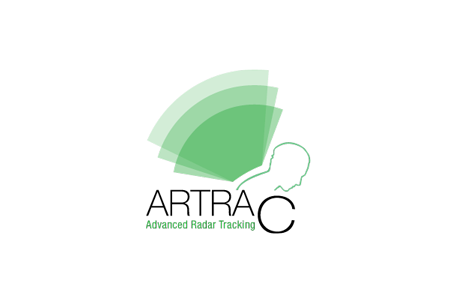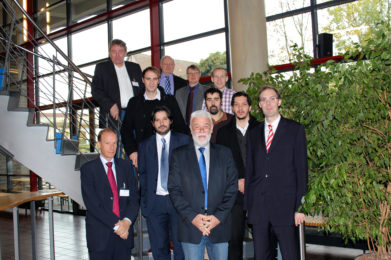
Successfully completed project ARTRAC
Advanced Radar Tracking and Classification for Enhanced Road Safety
Customer: Project funded by the European Commission 7th Framework Programme for Research and Technological Development
The “Advanced Radar TRAcking and Classification for enhanced road safety” (ARTRAC) research project contributed to the Road Safety Programme 2011-2020 concerning improved safety for vulnerable road users (VRU). The main objective was to develop a novel 24 GHz radar sensor to protect VRUs in general and reduce the number of fatalities in particular.
The European commission described the ambitious goal in 2001 to reduce the number of fatalities by 50% in a ten years time frame. This requirement has not completely met so far, however a significant progress could be observed when the number of fatalities has been reduced by 25% in the last 10 years due to several technical assistance procedures and techniques. For the period from 2011 to 2020 again the goal is to reduce the number of fatalities on European roads by 50% [1]. The technical challenge of ARTRAC was to develop a 24 GHz radar sensor product in high volume series cars, as they are already applied in high-end limousines. Current sensor systems (cameras and radar sensors) show already excellent performance in target detection for driver assistance and comfort system functionality. However, the new ARTRAC radar sensor has also a target recognition feature integrated. This functionality distinguishes between radar echo signals from pedestrians, bicyclists, vehicles and static objects and is able to classify these different objects. Thereby as a reaction upon a critical situation an extended functionality like automatic deceleration, steering recommendation and driver warning is performed. The system developed consists of a 24 GHz radar sensor, a risk assessment and a vehicle control procedure. This safety system has a high potential to be launched because the majority of all components belong already to standard equipment in series cars.
The success of the project for the partners means public and regulatory acceptance of the ARTRAC sensor and associated safety features. The ARTRAC website was designed and developed by Tutech Innovation with a view on using the graphic elements and part of the contents also for future dissemination activities. Tutech created a project flyer, which was distributed at several events and furthermore served as material introducing the project and its concept to interested persons.
Legacy
There are a number of systems to detect pedestrians in the market. However, these combine radar and optical sensors and thus come with a high cost and therefore are available in middle class to high-end cars only. At the end of the project, the ARTRAC system was the first to use radar only allowing implementation also in compact cars. The demonstration vehicles used were a Volkswagen GTI and a Fiat 500L.
A video summarising the results of the project and presenting impressions from the final event can be found on the archived project website.

“ARTRAC pursued the goal of significantly improving pedestrian protection in road traffic. To this end, a completely new 24 GHz radar system and radar concept was developed and built as a prototype during the course of the project”. Rohling continues: “The ARTRAC project was coordinated by Tutech. The extensive experience at Tutech, represented by Monica Schofield and Axel Wegner, made the project a real success. Already the right positioning of the project idea in one of the EU Directorates was an important help and support for the project. The cooperation between Tutech and seven other project partners was always excellent. The dramaturgy of the final presentation was successfully developed and realized by Tutech.”
Prof. Rohling, Hamburg Univeristy of Technology Institute of Communications

